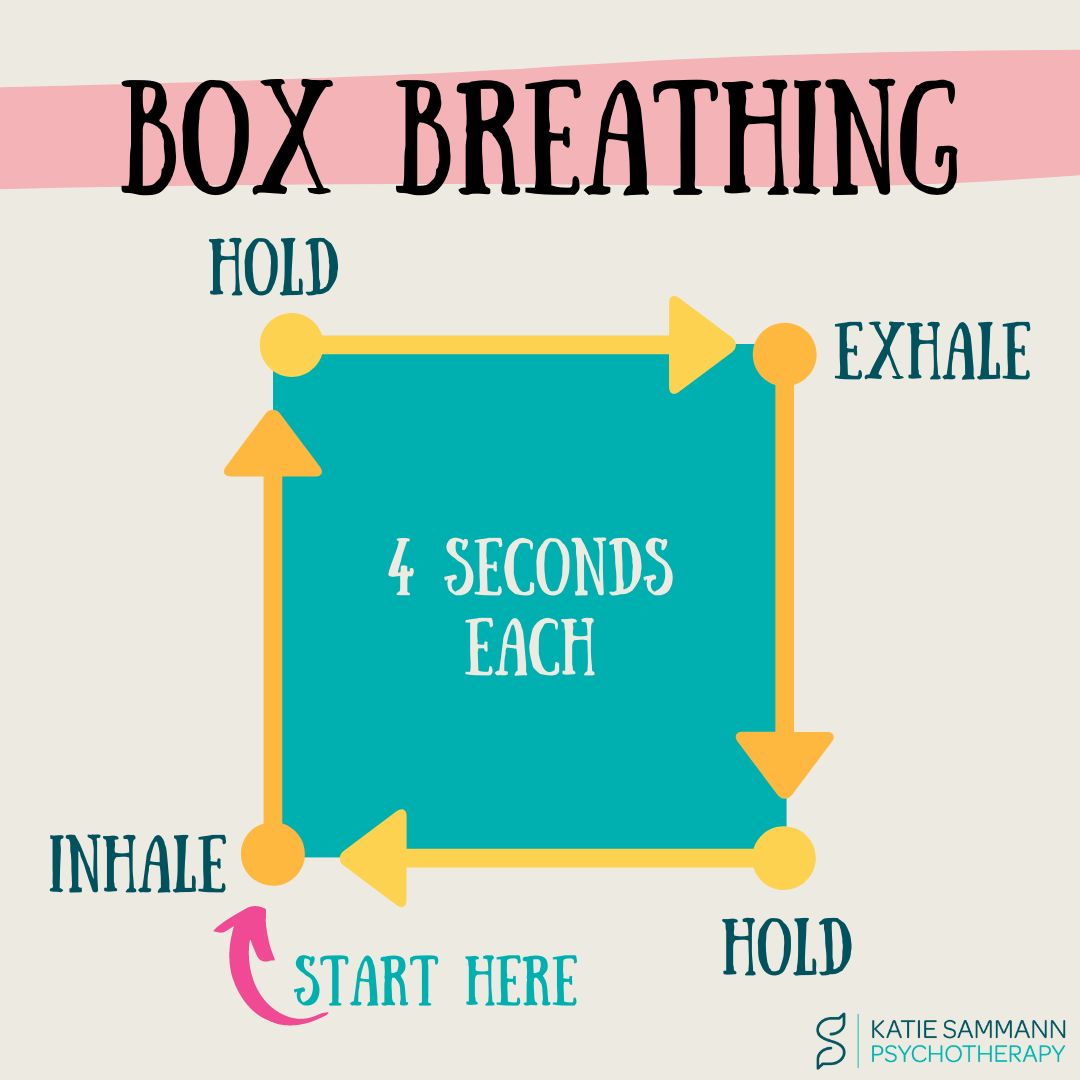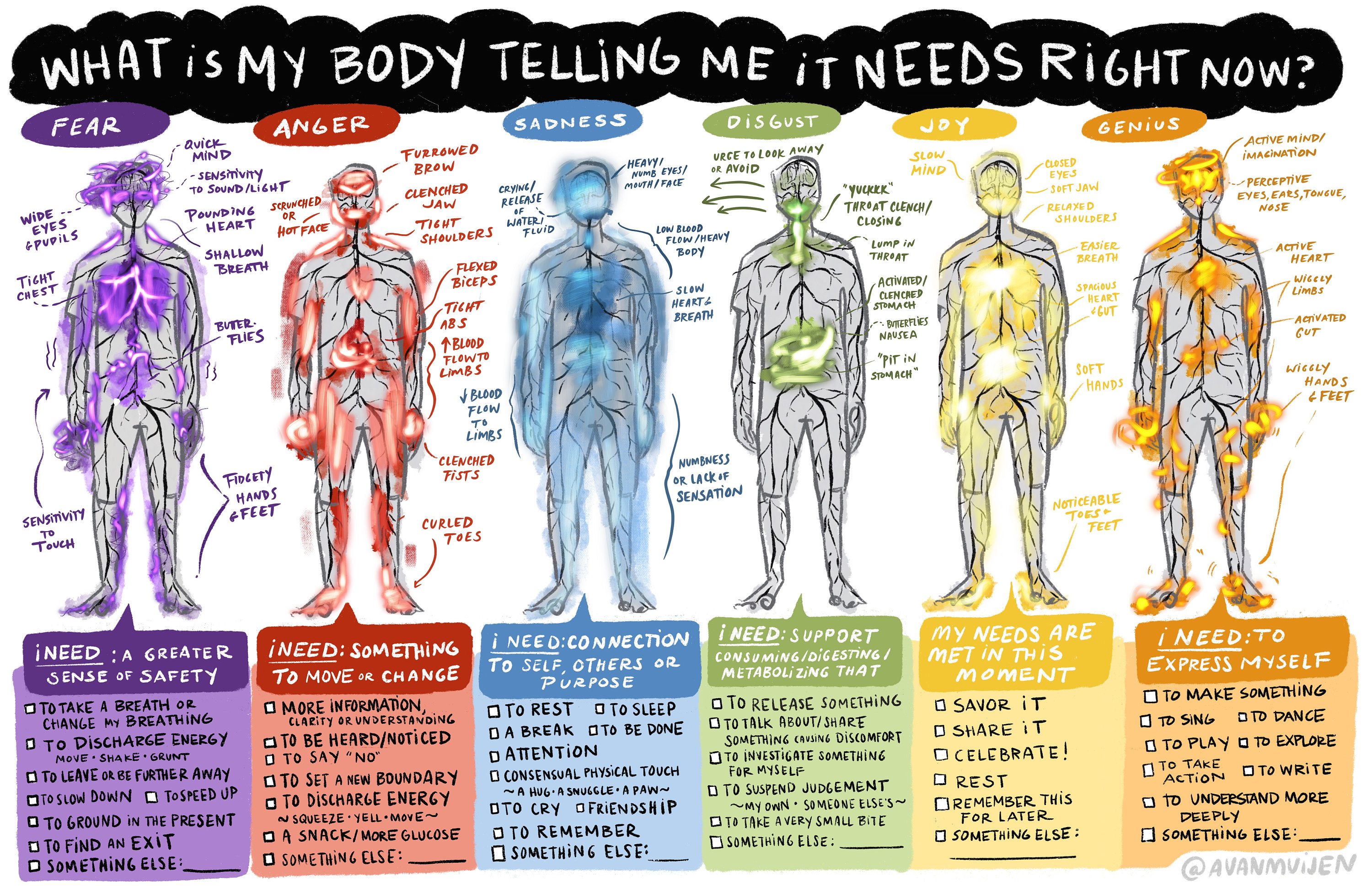Deep breathing can help calm your nervous system.
✅ True – Deep breathing activates the parasympathetic nervous system, helping your body relax and reduce stress.
What is a “trigger” in emotional self-management?
A trigger is something—like a situation, word, or memory—that causes a strong emotional reaction. Recognizing your triggers helps you prepare and respond more calmly.
What are examples of unhealthy coping skills?
Hitting someone or something, denial, isolation, all or nothing thinking, blaming
Let's practice deep breathing together.
✅ Deep Breathing – This slows your heart rate and helps regulate your nervous system.

You’re nervous before a test. What’s one thing you can do to calm down?
✅ Use deep breathing or positive self-talk – These help reduce anxiety and improve focus.
True or False: Ignoring your emotions is a healthy way to cope.
❌ False – Avoiding emotions can lead to bigger problems later. Acknowledging and processing feelings is key to self-management.
True or False: Everyone has the same emotional triggers.
False. Triggers are personal and based on individual experiences, especially past trauma or stress.
Is yelling at someone when you're upset a healthy or unhealthy coping skill?
❌ Unhealthy – Yelling can escalate conflict and hurt relationships. Healthy coping involves expressing feelings calmly.
Let's practice a Grounding Technique
✅ Grounding Technique – This helps you stay present and reduce anxiety by engaging your senses
.
You’re overwhelmed with homework. What’s a healthy first step?
✅ Break tasks into smaller steps or ask for help – This makes the workload manageable and reduces stress.
True or False: Self-management means controlling your emotions perfectly all the time.
❌ False – Self-management is about recognizing emotions and responding in healthy ways, not perfection.
You notice your heart racing and your fists clenching after someone makes a joke about you. What might be happening?
You’re likely being emotionally triggered. Your body is reacting to a perceived threat, and it’s a signal to use a coping skill like deep breathing or grounding.
Is isolating yourself when you're sad a healthy or unhealthy coping skill?
❌ Unhealthy – While short breaks can help, long-term isolation can worsen emotional health. Connection is key.
Let's practice Positive Self-Talk
✅ Positive Self-Talk – Encouraging thoughts help shift your mindset and build resilience.

You had a disagreement with a friend. What’s a healthy way to respond?
✅ Take space and talk calmly later – This prevents escalation and supports respectful communication.
True or False: Talking to a trusted adult is a form of self-management.
✅ True – Seeking support is a proactive and healthy way to manage stress and emotions.
What’s one way to respond to a trigger without reacting impulsively?
Pause and use a coping skill—like counting to 10, grounding, or walking away—to give yourself space to respond thoughtfully.
Is going for a walk to clear your mind a healthy or unhealthy coping skill?
✅ Healthy – Physical movement reduces stress and boosts mood.
Let’s do a quick body scan. Start at your feet and notice how each part feels.
✅ Mindfulness – Body scans help you tune into physical sensations and calm your mind.

You’re feeling sad and don’t know why. What’s a self-management strategy to try?
✅ Journaling or talking to a trusted adult – These help you explore emotions and get support.
True or False: Maladaptive coping strategies may provide short-term relief but often lead to long-term emotional or behavioral problems.
✅ True - Maladaptive coping strategies—like avoidance, substance use, aggression, or self-isolation—can temporarily reduce emotional discomfort, but they often prevent healthy emotional processing and increase stress over time. These behaviors can interfere with relationships, academic performance, and mental health. Learning and practicing adaptive coping skills helps build resilience and long-term emotional well-being.
You’re triggered due to past experiences. What’s a long-term self-management strategy you can use (make this personal)?
Responses may vary.
(Identify the trigger, practice calming techniques regularly, and talk to a counselor or trusted adult to build a plan for managing future situations. This is part of building emotional resilience.)
Is using substances to avoid feelings a healthy or unhealthy coping skill?
❌ Unhealthy – Substance use can mask emotions and lead to harmful consequences. Healthy coping addresses feelings directly.
Let's practice Progressive Muscle Relaxation
✅ Progressive Muscle Relaxation (PMR) – This technique involves tensing and then relaxing different muscle groups to reduce physical tension and calm the mind. It’s especially helpful for managing anxiety, stress, and trauma responses. By focusing on the contrast between tension and relaxation, students become more aware of their body and learn how to release stress physically.

You notice a friend is withdrawing and seems off. What’s a supportive step you can take?
✅ Check in and tell a trusted adult – This shows care and ensures they get the help they may need.